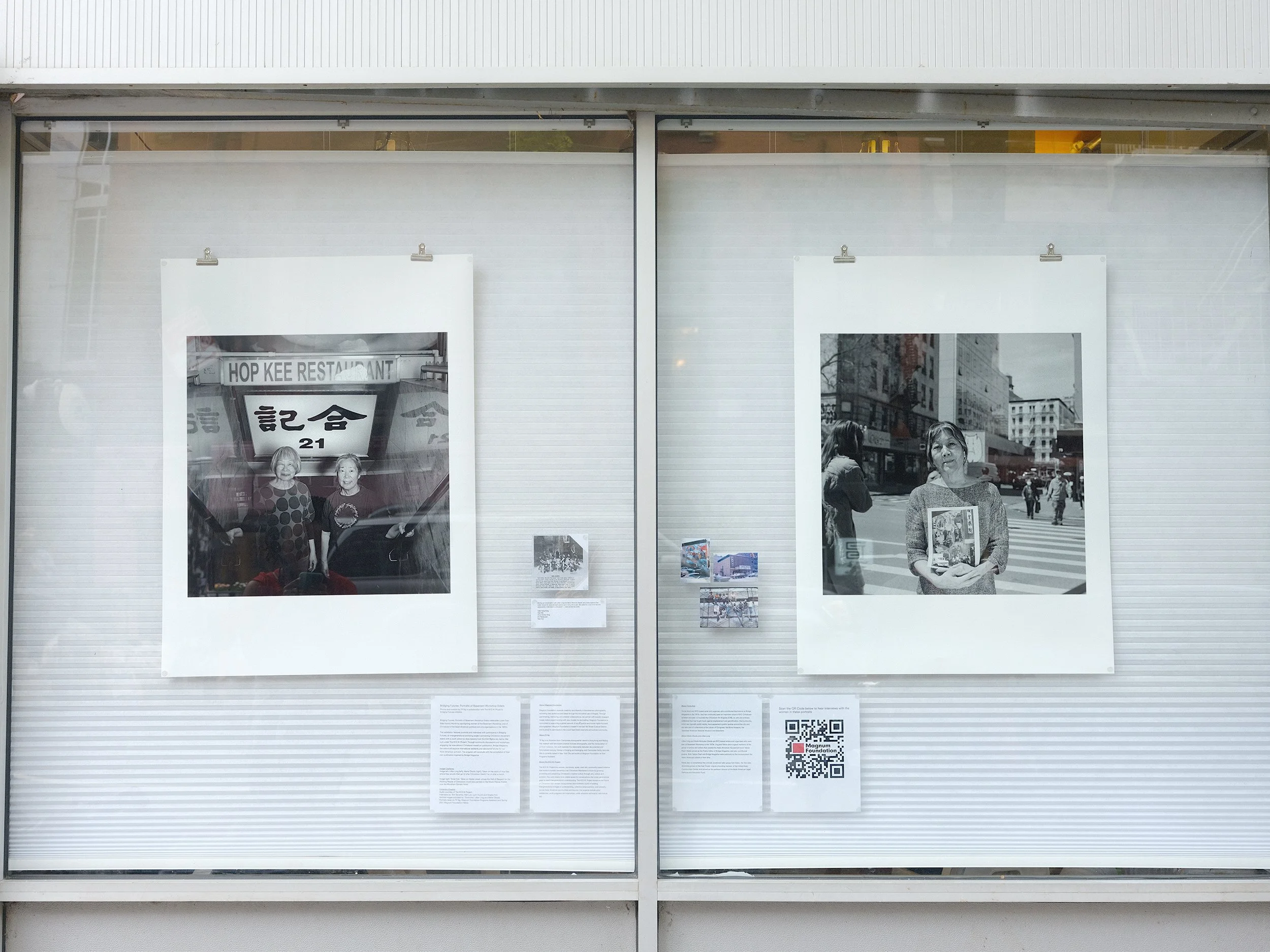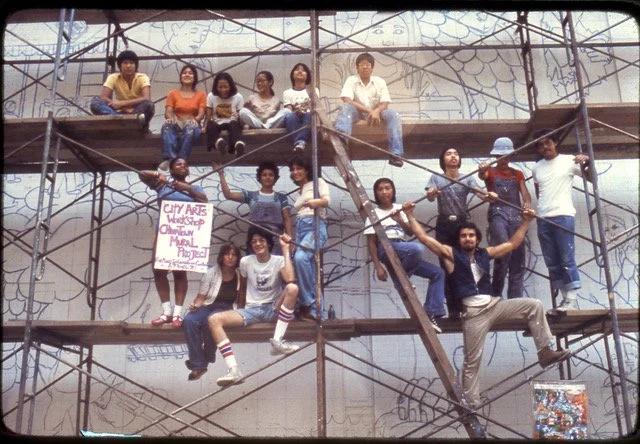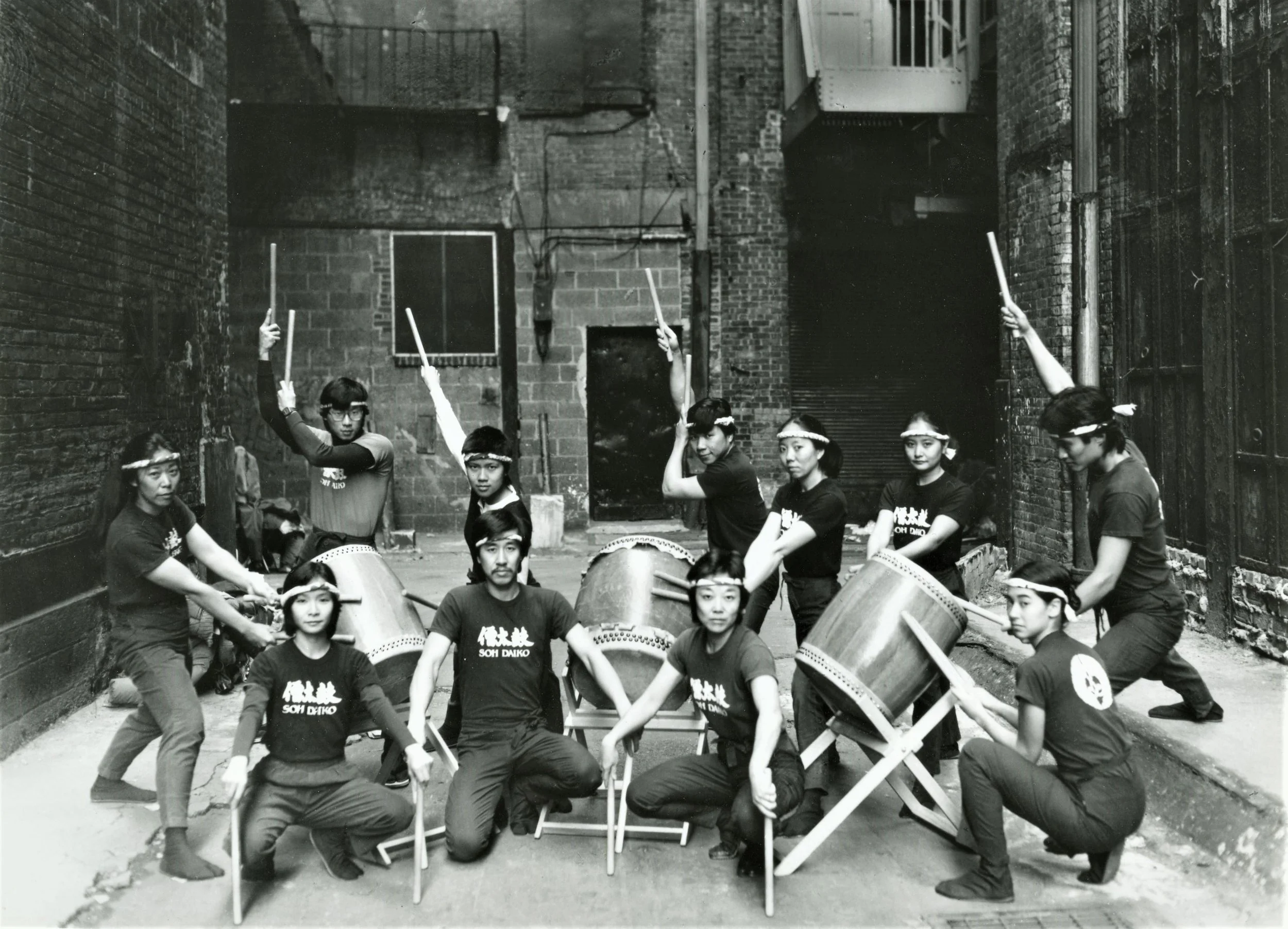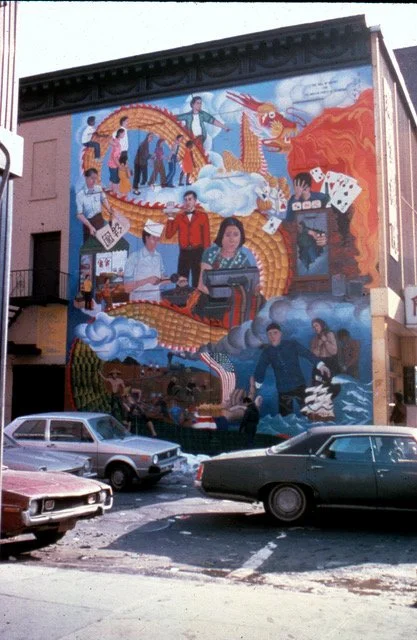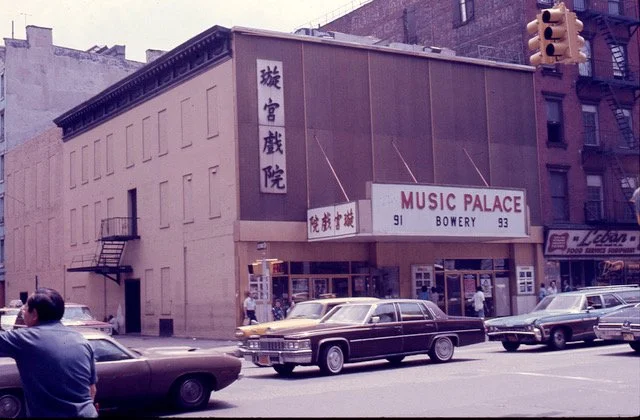Bridging Futures: Portraits of Basement Workshop Elders
Photos and curation by Tif Ng IN COLLABORATION WITH The W.O.W. Project’s Bridging Futures initiative
Now on view in the ground floor windows of our building at 59 East 4th St., Bridging Futures: Portraits of Basement Workshop Elders celebrates Lower East Side History Month by spotlighting women of the Basement Workshop, one of Chinatown’s first Asian-American political and arts organizations in the 1970’s.
The installation features portraits and interviews with participants in Bridging Futures, an intergenerational archiving project connecting Chinatown movement elders with a youth cohort to draw lessons from the Civil Rights era, led by Mei Lum under The W.O.W. Project. Through community discussions and workshops engaging the now-defunct Chinatown-based art publication, Bridge Magazine, the cohort will explore international solidarity and decolonial futures for our Asian-American activism. The program will conclude with the compilation of their own publication inspired by Bridge Magazine.
Hear from some of the women below, whose portraits will be on view through the end of May in the ground floor windows of Magnum Foundation’s office at 59 East 4th St.
Lillian Ling (left), Merle Okada (right). Taken on the stairs of Hop Kee, where they would often go to after Chinatown Health Fair or after a march. Portrait by Tif Ng.
“If you talk to our friend Bird, he says, why isn’t there a place like Basement today? Back in the 70s, 80s, there was a place for young people to go and hang out, to share and cross-fertilize ideas...In a way, I think that both of us kind of never really left the community, or it [Basement] influenced the community and our whole lives because those friendships continued through.”
Tomie Arai. Taken on Hester street, where the Wall of Respect for the Working People of Chinatown mural was painted on the Music Palace theater, now the Wyndham Garden Hotel. Portrait by Tif Ng
“I didn’t have the benefit of going to college, so I really think that the murals became my classroom. I was 23 when I started painting murals, and that’s where I learned how to make art. At that time there were a lot of artists of color in the city who were trying to find a voice and gain some measure of control over the cultural institutions that claimed to serve them. They wanted to create their own institutions and develop new venues for their work. Community murals and public art in local neighborhoods offered something new.”
Chinatown Mural, 1977. Image Courtesy of Tomie Arai
“At the time, we weren’t thinking the murals were going to last very long but this one was up for decades. A few years ago, an elderly man who had lived at 81 Bowery for almost 20 years told me that he loved that mural, that every time he saw that mural, he knew he was almost home.”
Soh Daiko, 1984. Taiko group that Merle Okada co-established. Taken in an alley on Great Jones Street. Image courtesy of Merle Okada.
1977 Hester Street mural, The Wall of Respect for the Working People of Chinatown. Image Courtesy of Tomie Arai
Music Palace, 1976. Image courtesy of Tomie Arai
About Magnum Foundation
Magnum Foundation expands creativity and diversity in documentary photography, activating new audiences and ideas through the innovative use of images. Through grantmaking, mentoring, and creative collaborations, we partner with socially engaged image-makers experimenting with new models for storytelling. Magnum Foundation is committed to supporting a global network of social justice and human rights-focused photographers. Magnum Foundation is based in the East 4th Street Cultural District and is proud to participate in the Lower East Side’s local arts and activist community.
About Tif Ng
Tif Ng is an American-born Cantonese photographer raised in Hong Kong and Beijing. Her research and arts-based practice includes photography, and the manipulation of archival materials. Her work explores the relationship between documented and fictionalized memory, themes of longing and belonging, and Cantonese family histories. She is currently based in New York City and works at Magnum Foundation as their Programs Assistant.
About The W.O.W. Project
The W.O.W. Project is a women, non-binary, queer, trans led, community-based initiative that works to sustain ownership over Chinatown Manhattan’s future by growing, protecting and preserving Chinatown’s creative culture through arts, culture and activism. Our core mission is to create space for conversations that cross generational gaps to seed intergenerational understanding. The W.O.W. Project envisions the future of Chinatown that centers young women and nonbinary youth in building intergenerational bridges of understanding, collective empowerment, and solidarity across Asian American communities and beyond. Our projects include artist residencies, youth programs and internships, public artworks and events, and mutual aid.
About Tomie Arai
Tomie Arai is an NYC-based artist and organizer who contributed illustrations to Bridge Magazine in the 1970s. Arai has continually been an important voice in NYC Chinatown activism and also co-founded the Chinatown Art Brigade (CAB), an arts and activism collective that has fought back against displacement and gentrification. Arai’s artworks, which are typically public works, have appeared in public spaces around the city and are also part of collections at the Library of Congress, the Bronx Museum, the Japanese American National Museum and elsewhere.
About Merle Okada and Lillian Ling
Lillian Ling and Merle Motooka Okada are NYC-based artists and organizers who were part of Basement Workshop in the 1970s. Ling and Merle were original members of the group of artists and writers that created the Asian-American focused art book Yellow Pearl. Merle served as the Poetry Editor of Bridge Magazine, and also contributed poems. Both Yellow Pearl and Bridge Magazine were publications that encapsulated the Asian American culture of their time.
Merle also co-established the critically acclaimed taiko group Soh Daiko, the first taiko drumming group on the East Coast. Ling is a founding member of the United Asian Communities Center and served as the assistant director of the Asian American Legal Defense and Education Fund.
Exhibition Credits: Audio courtesy of The W.O.W Project. Interviews by: Kim Savarino, Mei Lum, Lynn Huynh and Singha Hon. Archive images provided by: Tomie Arai, Lillian Ling and Merle Okada. Portraits taken by Tif Ng, Magnum Foundation Programs Assistant and Spring 2021 Magnum Foundation Fellow.

